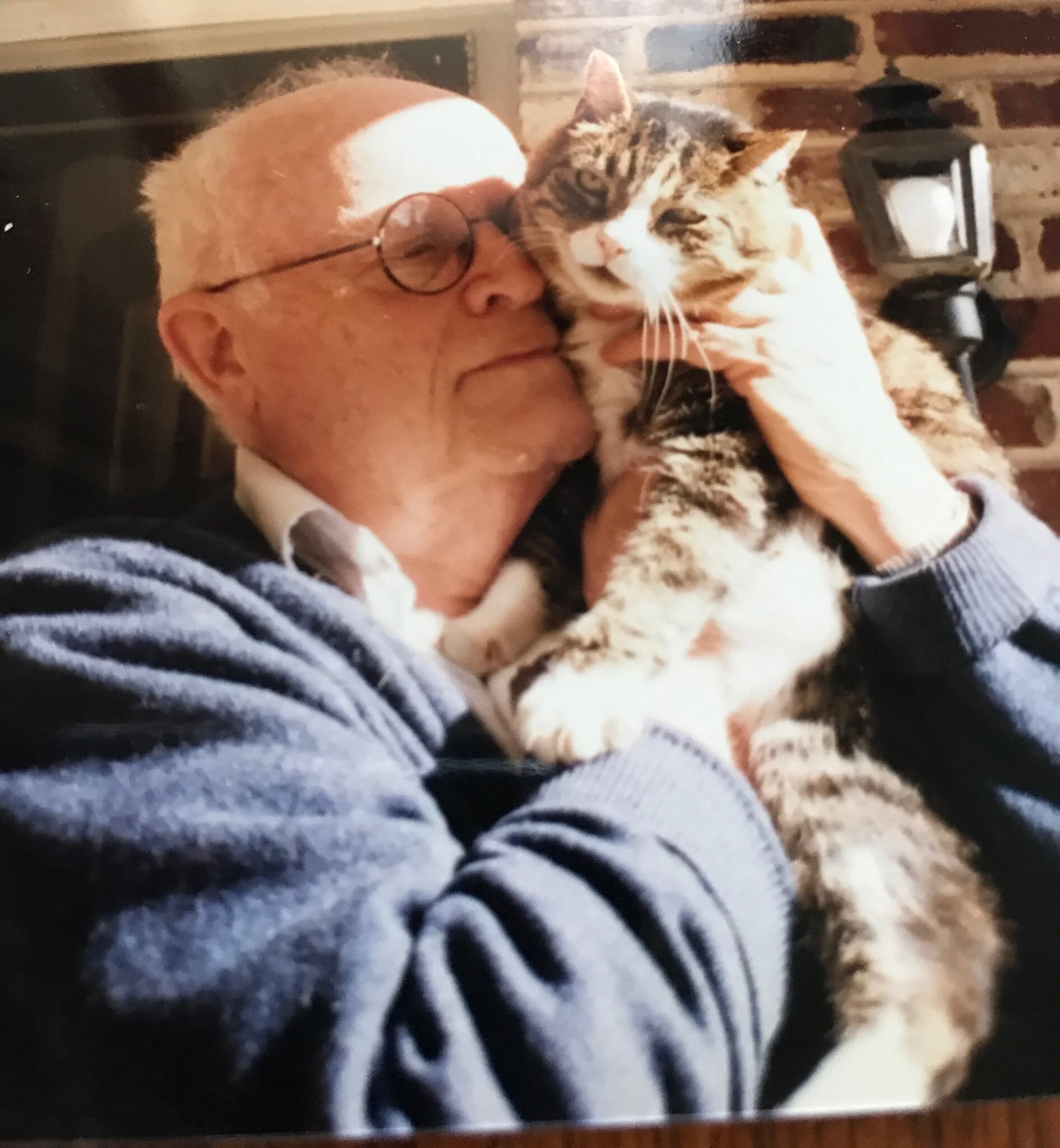Holman Weiser Jenkins Sr.
Long-time Swarthmore resident Holman Weiser Jenkins Sr. died from COVID-19 on April 14. He was 98 years old.
From 1960 to 2006, Holman lived in Swarthmore with his wife, Barbara, who passed away in 2018. From 2006, they lived at Granite Farms Estates in Media.
A friend of many in Swarthmore, he was recognized around town wearing his green army jacket and red beret. Both were remnants of his time in France during World War II and afterwards when he attended the University of Nancy. He was a captain of a tank company in the 7th Army, which landed in the South of France and fought its way up the Rhone Valley and from there into Germany.
In the final days of the war, Holman received his only serious wound. As he told the story, the German army was surrendering in droves to the Americans for fear of having to surrender to the Russians. That’s when a German soldier took a pot shot at him. It was an injury he said felt more insulting than anything else.
When the firing officially stopped, he made his way to a library in a small German town. He asked the librarian for works by Thomas Mann. She told him that the Nazis had removed all of Mann’s books in German, but ones in English translation remained.
It was characteristic of Holman that at first chance he headed to a library. His wife Barbara was a long-time volunteer at the Swarthmore Public Library, and he was frequently to be found there, or at the Swarthmore College Library. He and Barbara used to comb second-hand bookshops until, over the years, virtually the entire wall space of their house on Dartmouth Avenue — from basement to bedrooms to hallways — was lined with bookshelves, often holding books two deep. Generations of cats and dogs also occupied the house. These were strays they found, or that were delivered to the front porch by neighbors who knew the animals would find a welcome home with the Jenkins.
Movies were a great passion. In the 1960s and ’70s, when Swarthmore College would screen films on weekend nights in the open Gothic nave of Clothier Hall, Holman would take family and friends to such classics as “Horse Feathers,” “The Seventh Seal,” and “Sleeper.” Politics were also of great interest, and in 1968 he introduced his kids to campaigning, at Hubert Humphrey’s headquarters at the gasoline station where Bryn Mawr Trust now sits.
Raised in Ardmore, Holman would tell stories of how he and his friends sneaked into the back of the Ardmore Theater in the 1930s to watch Dick Powell features and shorts of Buster Crabbe as Flash Gordon. A graduate of Lower Merion High School, he attended the Citadel, a military college in South Carolina. There, in 1940 and ’41, in anticipation that the German navy might bombard America’s eastern ports if Great Britain fell, he was trained in coastal artillery. Many of his upperclassmen friends were hurriedly shipped off to the Philippines and never returned.
After the war, Holman devoted his career to improving access to higher education. He received his doctorate in political science from the University of Pennsylvania and taught in a number of Pennsylvania universities, including Cheney, Lincoln, and Mansfield. Later he worked for the Pennsylvania State Teachers Association (now the Pennsylvania State Education Association), negotiating better benefits in faculty contracts.
He and his wife Barbara had a deep Christian faith. Theirs was a philosophical and forgiving Calvinism, cosmic and intimate in scope, which viewed everything from the vast phenomena of the universe to the smallest details of ordinary life as reflecting the mysterious and merciful hand of God.
Memories of him and Barbara are cherished by their three children, Caroline, Holman Jr., and Tom, as well as four grandchildren and six great-grandchildren.




